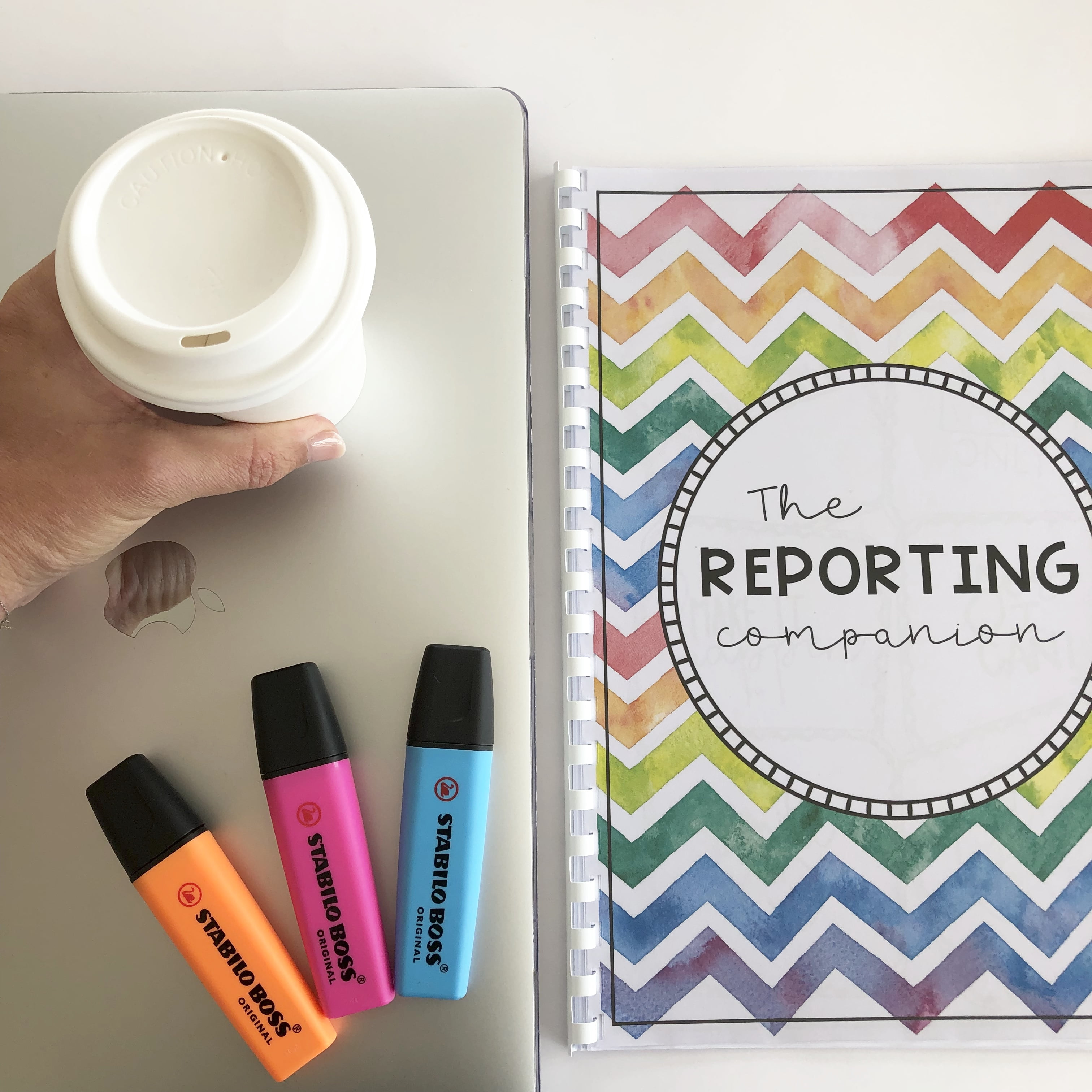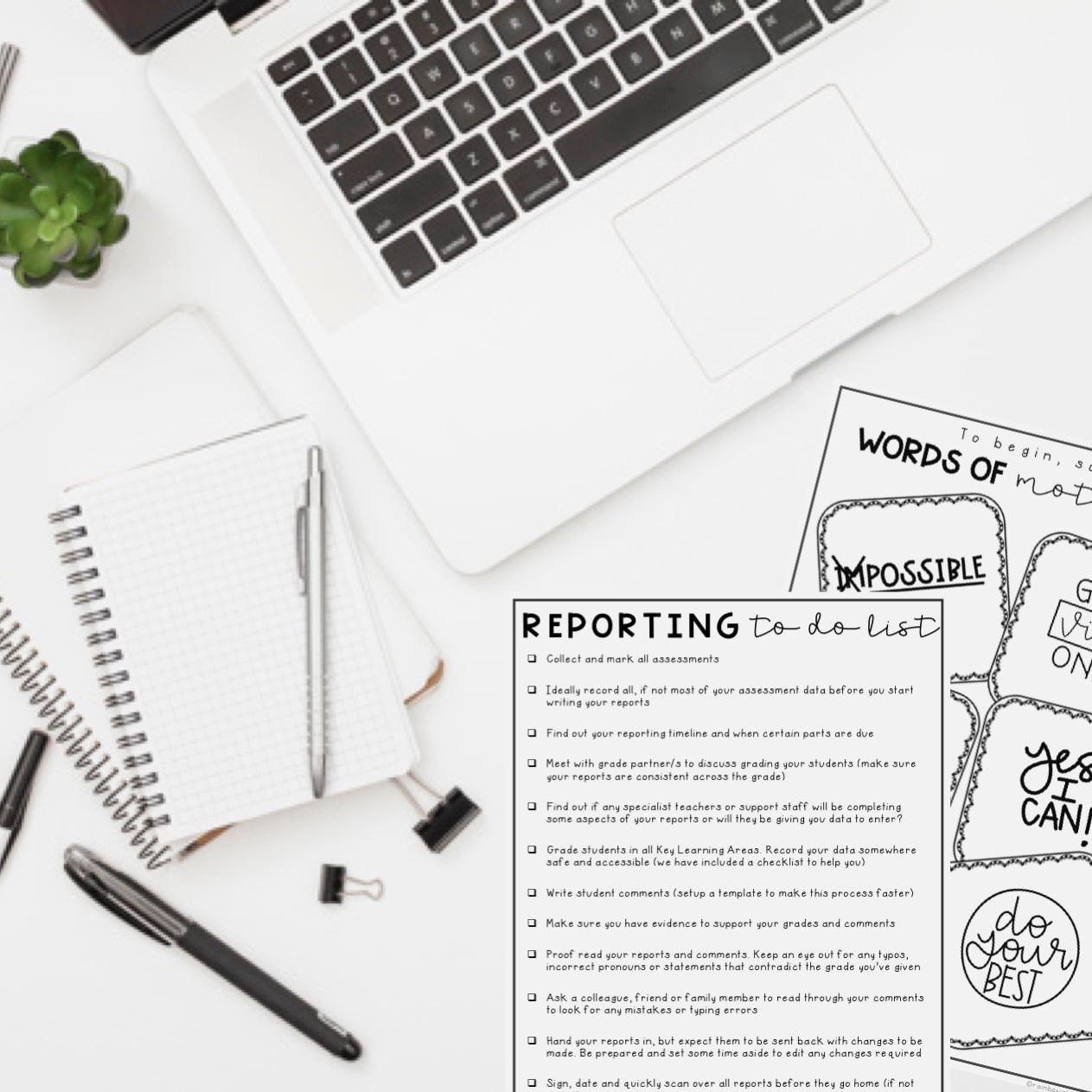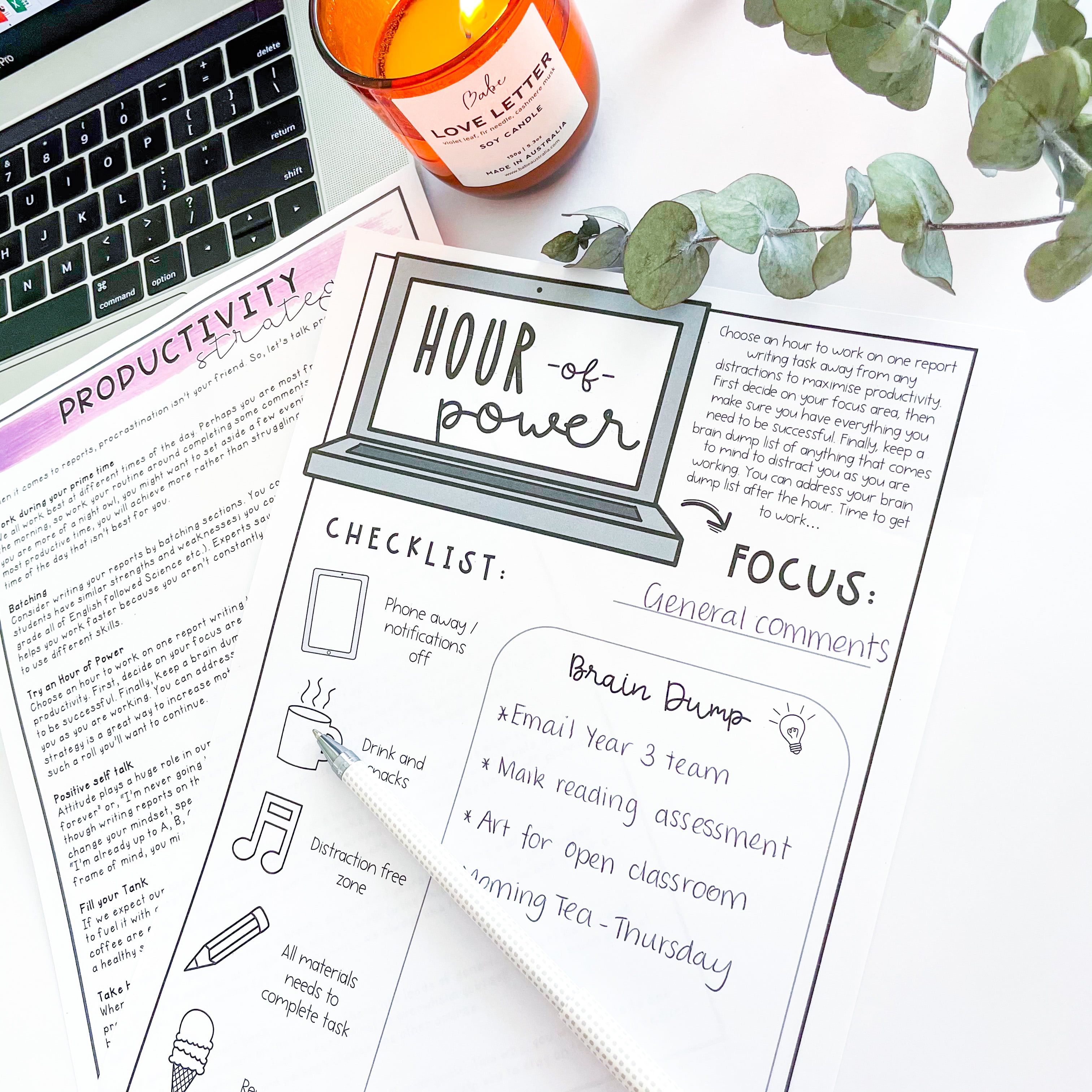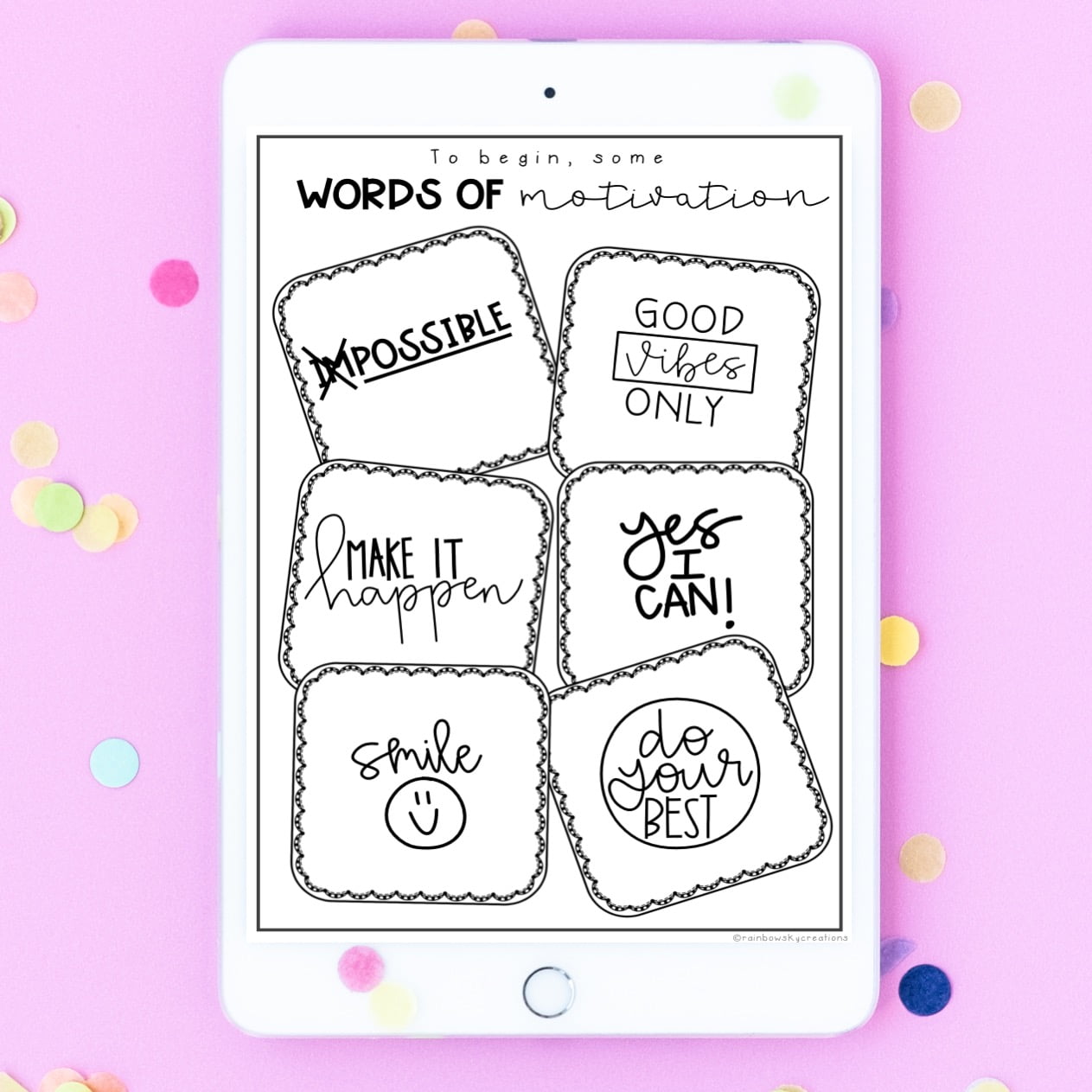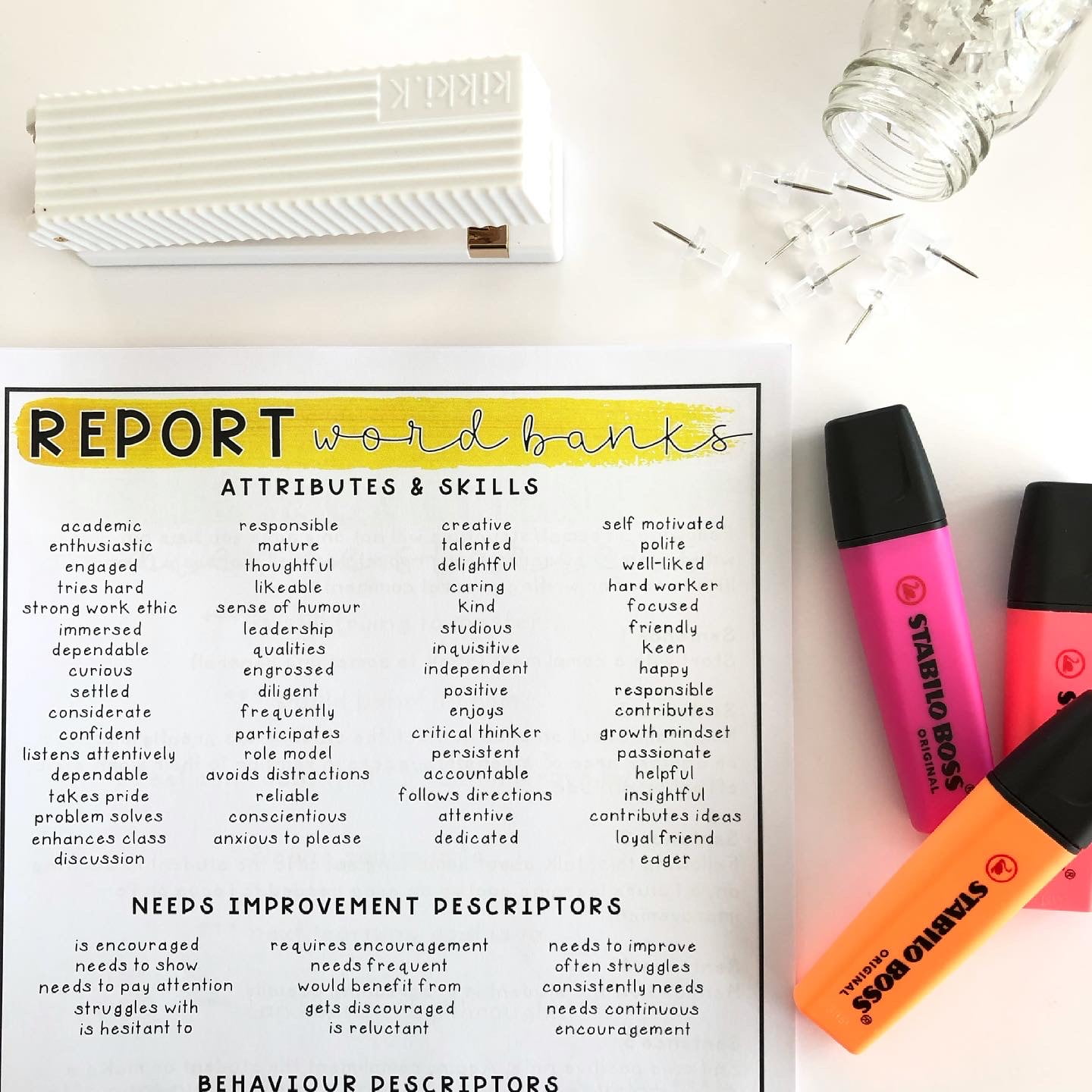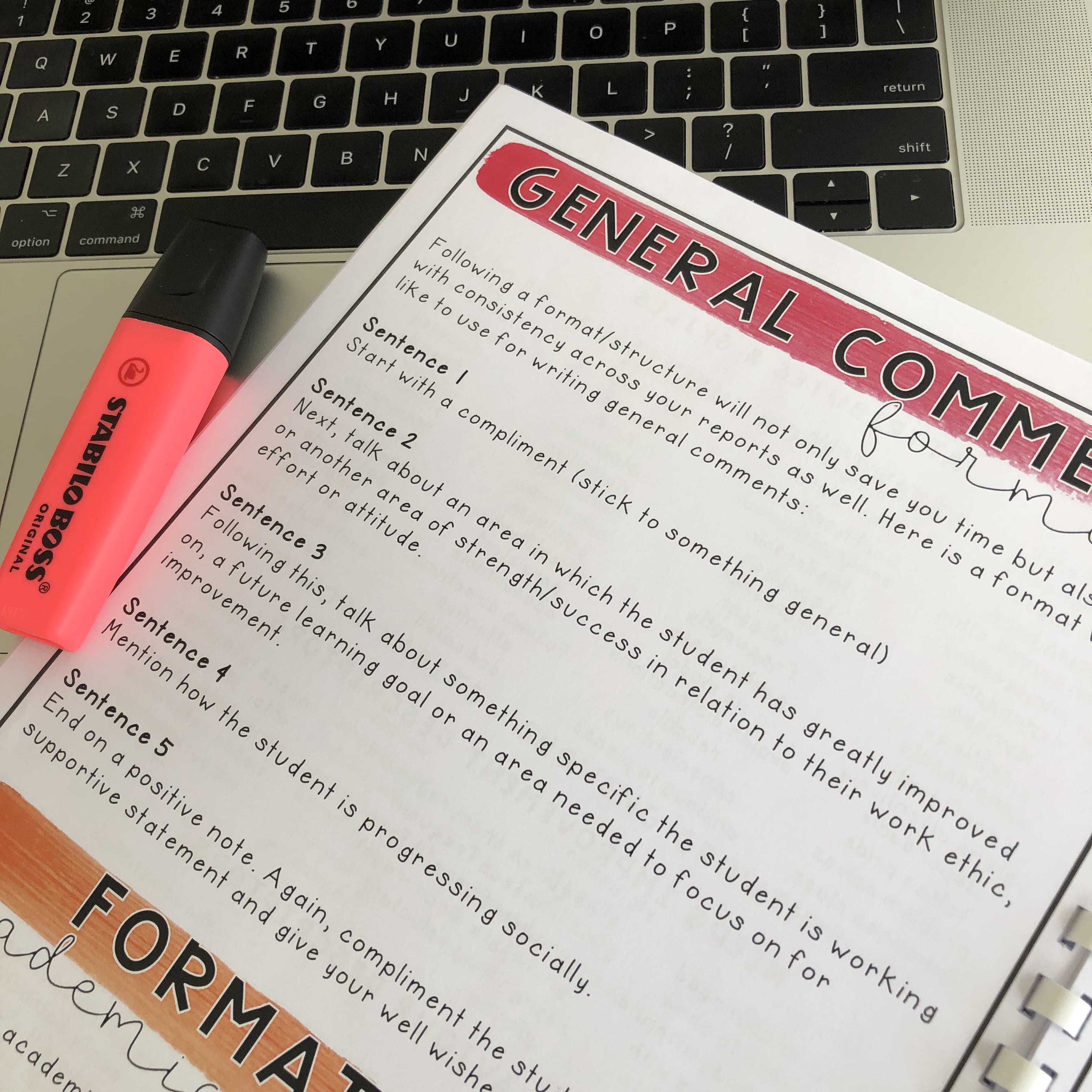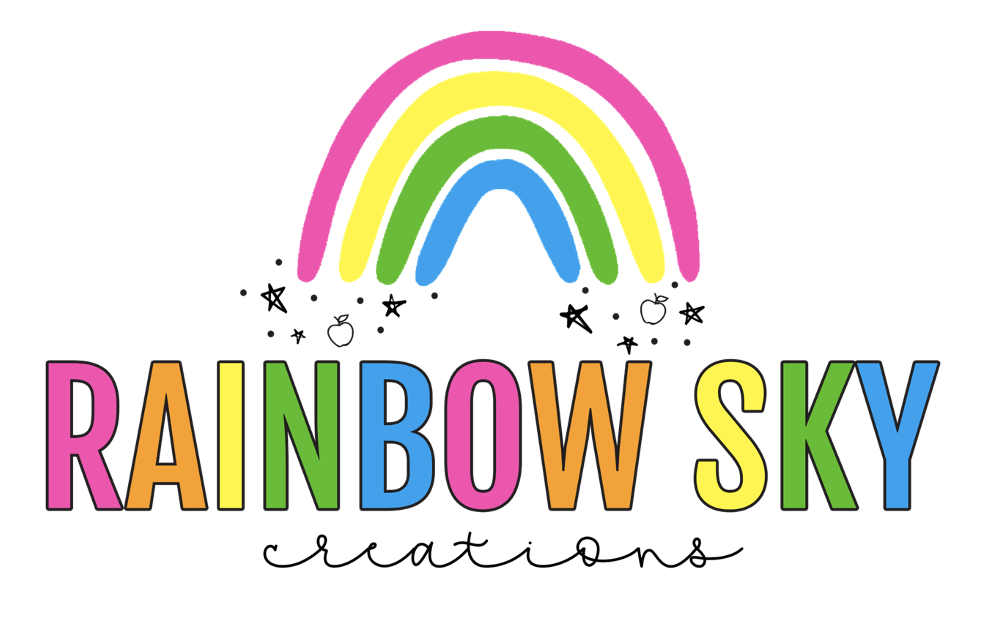As you know, writing reports and getting them handed in without them taking over your life comes down to good time management and working productively.
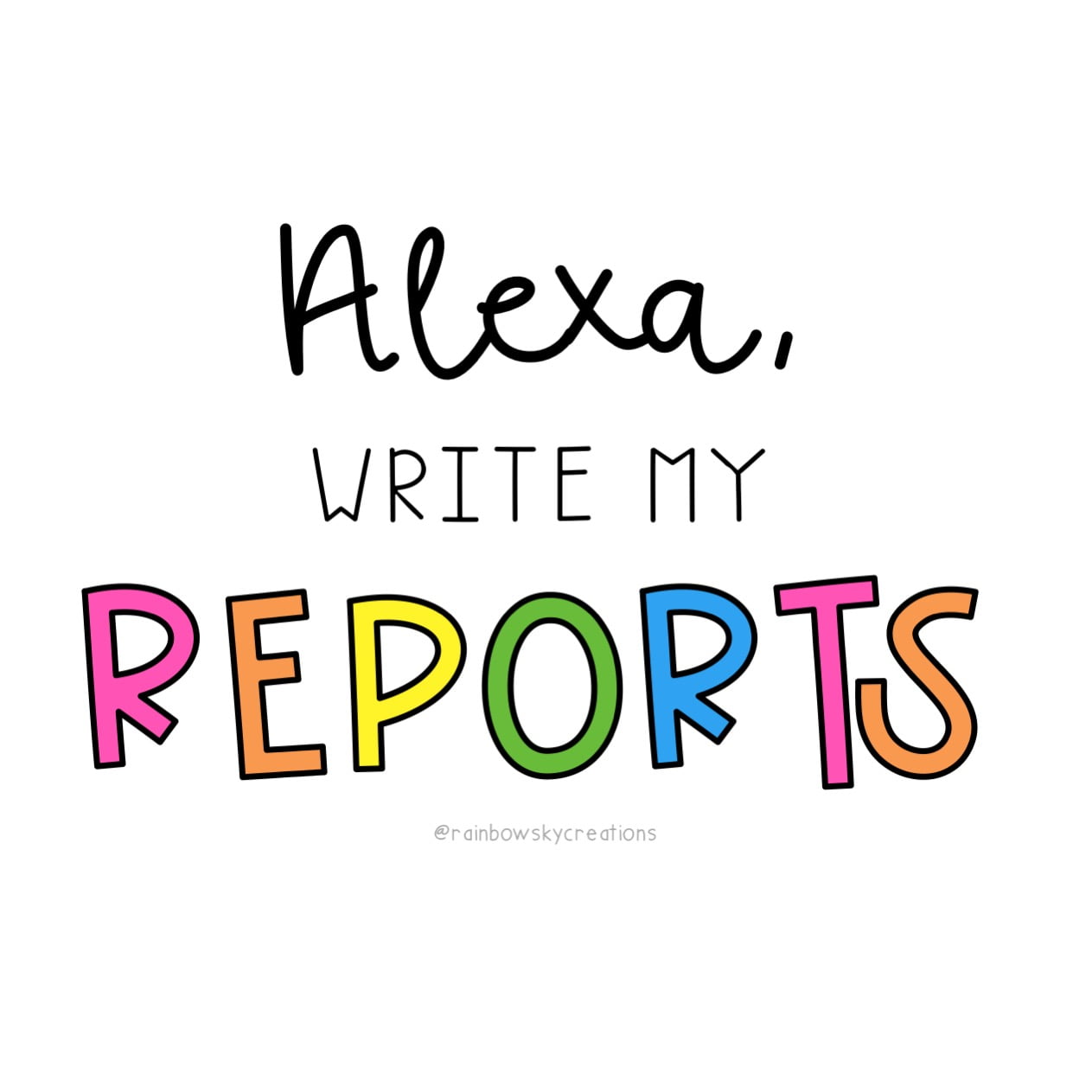
This post is Part 3 of our 4-part series about Writing Reports. Click here to read our article to help you get started with writing your report comments.
When it comes to reports, procrastination isn’t your friend. So, without much further ado, let’s dive straight into our top productivity strategies for report writing because every minute counts, right?!
1. Eliminate distractions
Find a place to work that you find comfortable. Completing report writing efficiently and to a high standard means, there is no room for distractions such as phones, podcasts, or chatty colleagues. Try putting your phone on airplane mode or leave it in another room and turn off the wifi on your computer if needed.
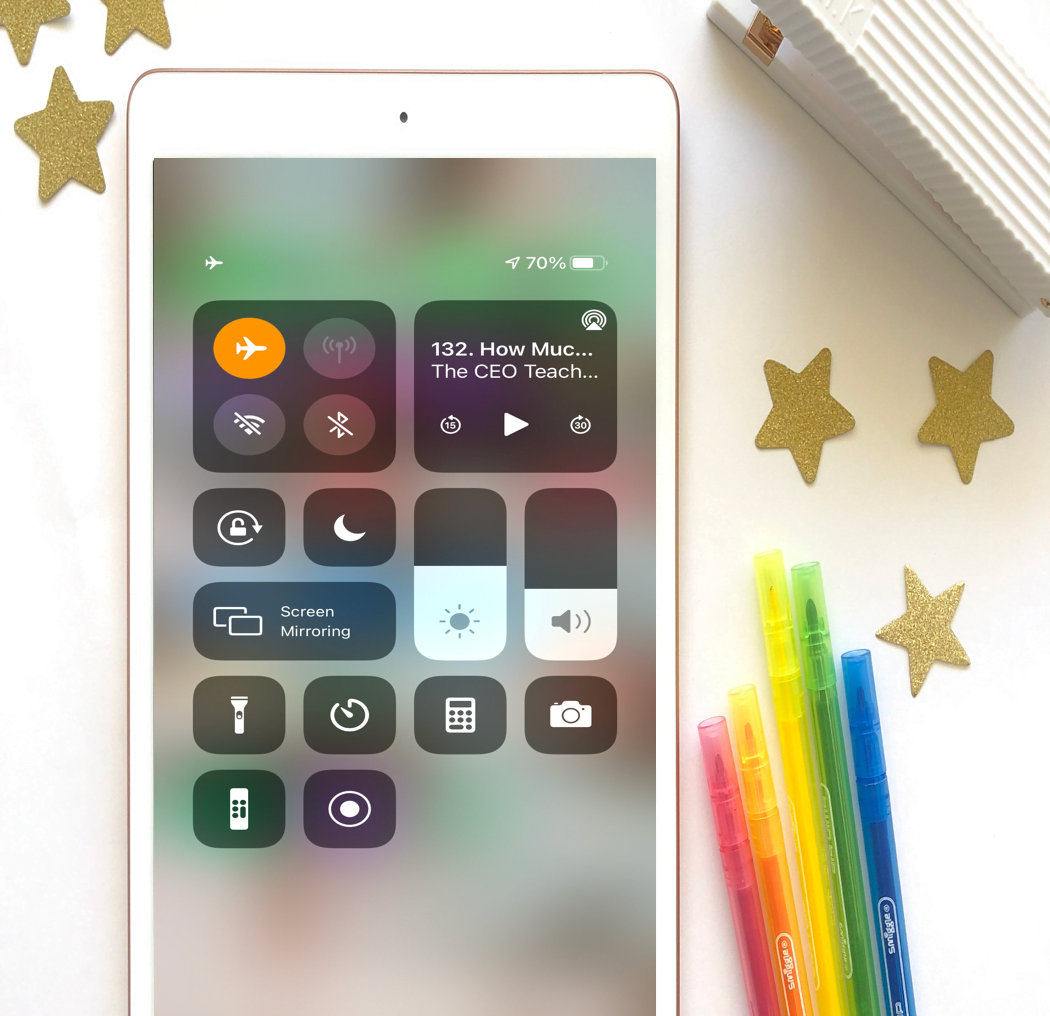
2. Work during your prime time
We all work best at different times of the day. Perhaps you are most fresh and motivated in the morning, so work your routine around completing some comments in the morning hours. If you are more of a night owl, you might want to set aside a few evenings.
By choosing your most productive time, you will achieve more rather than staying motivated during a time of the day that isn’t best for you. Also, this might mean moving other parts of your normal routine around for a short period of time until reports are done!
3. Prep your workspace
When it is time to sit down and get working make sure you have all your assessment data ready, materials you might need at your fingertips (highlighters, computer charger, pens, and something to drink). This way, you won’t waste time getting up and searching for items.
4. Batching
Consider writing your reports by batching sections. You could do this in ability groups where students have similar strengths and weaknesses; you could do it by subject (e.g. write and grade all of English followed Science etc.). Experts say batching is easier on the brain and helps you work faster because you aren’t constantly switching tasks and asking your brain to use different skills.
5. Keep checklists
As teachers, we love checklists. They are a great way to note what you need to do and a visual for you to see how far you have come. Having a checklist will hopefully help avoid any last-minute jobs that you forgot from cropping up!
Find these checklists in our Report Companion
Bonus Tip: Don’t throw away your reporting checklist when you are finished. Instead, file it away. This checklist will be gold next time you need to write reports because all the key tasks have already been noted down!
6. Try an Hour of Power
Choose an hour to work on one report writing task away from any distractions to maximise productivity. First, decide on your focus area, then make sure you have everything you need to be successful. Finally, keep a brain dump list of anything that comes to mind to distract you as you are working. You can address your brain dump list after the hour.
We find this strategy is a great way to increase motivation, and often once the hour is over, you are on such a roll you’ll want to continue.
Find this template in our Report Companion
7. Positive self talk
Attitude plays a huge role in our success. Saying things to yourself like, “This is taking forever” or, “I’m never going to get this done in time” isn’t setting you up for success. Even though writing reports on the weekend might not be the most riveting task in the world, change your mindset, speak kindly to yourself, and cheer yourself on. Try saying things like, “I’m already up to A, B, C” or, “Wow, I’m really getting through this”. By going in with a better frame of mind, you might even trick your brain into thinking this isn’t so bad after all.
8. Fill your Tank
If we expect our brain to consistently work at a high and efficient level, we must remember to fuel it with good food and other healthy choices like physical activity. Sweet treats and coffee are easy ‘go-tos’ when it comes to report writing, but you might be better off planning a healthy snack and a large glass of water while you are working.
9. Take breaks
It is important that you are focused. When you permit yourself to take a break, you will find yourself working a lot more productively. It might be as simple as a stretch, walk to the toilet, or filling up your water bottle. If you know it is time for a longer break, we always like to get outside and go for a walk.
10. Use a generic comment bank
No one is writing a report on the teacher. There are loads of generic comment banks and vocabulary lists to help you (we have included some in our Report Companion if you need some extra help). Just be careful not to overwhelm yourself with too much choice! Choose one or two banks of comments to work from, and it won’t be long until you have a bank of your own comments after years of teaching. If you have been teaching for a while, sometimes a fresh bank of comments from a website or colleague is just the inspiration you need.
Word Banks included in our Report Companion
11. Work smarter
We like to put together comments suitable for each academic grade, to begin with. That way, we start with a bank of ready-to-go sentences that we string together to suit each student (even better, you might want to share this task with a colleague who teaches the same grade and halve your preparation time!) Use word banks, sentence starters, comments you have written before, and the syllabus. There is no ‘teacher criteria’ saying that every report needs to be written from scratch from your own brain!
12. Be intentional
When you sit down to write reports, set yourself mini-goals. This way, you will be able to see what you have gained from the time invested. It will also help you to stay on track and reduce feelings of overwhelm and distraction.
At the end of the day, our reports aren’t going to be written by staring at our to-do list or wishing the magical report fairy would pay a visit. So best, you get stuck into them, work with purpose and hopefully, you will be productive and enjoy some self-care in no time.
This is part 3 of our 4-part Report Writing blog series. Click here to read Part 1, Part 2, and Part 4.
Need a one-stop-shop to help you with your report writing?
Check out our Report Companion for checklists, progress trackers, word banks, example comments, and more!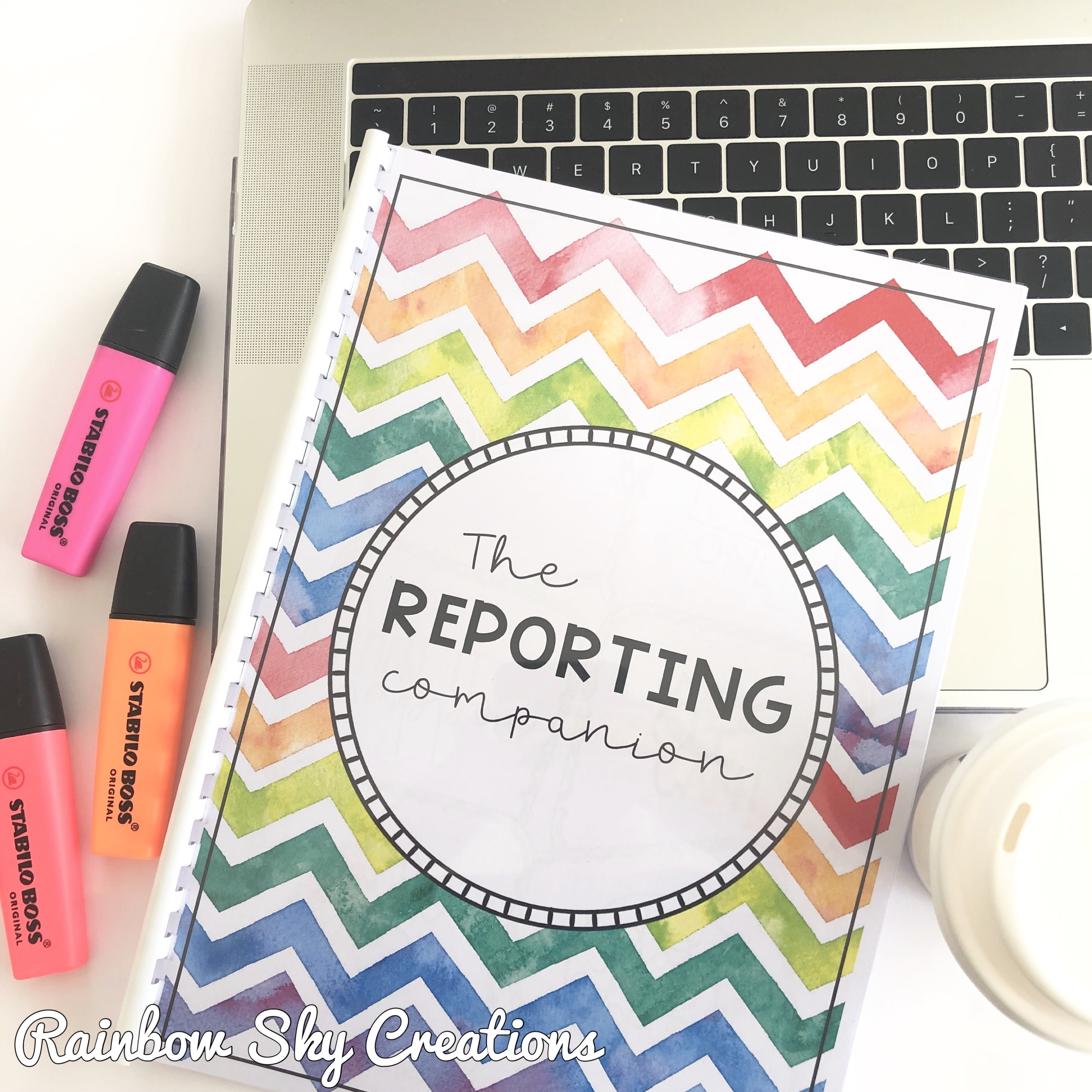
Before you go, are you a New Teacher?
What to read next:
10 Considerations when planning authentic Assessment
